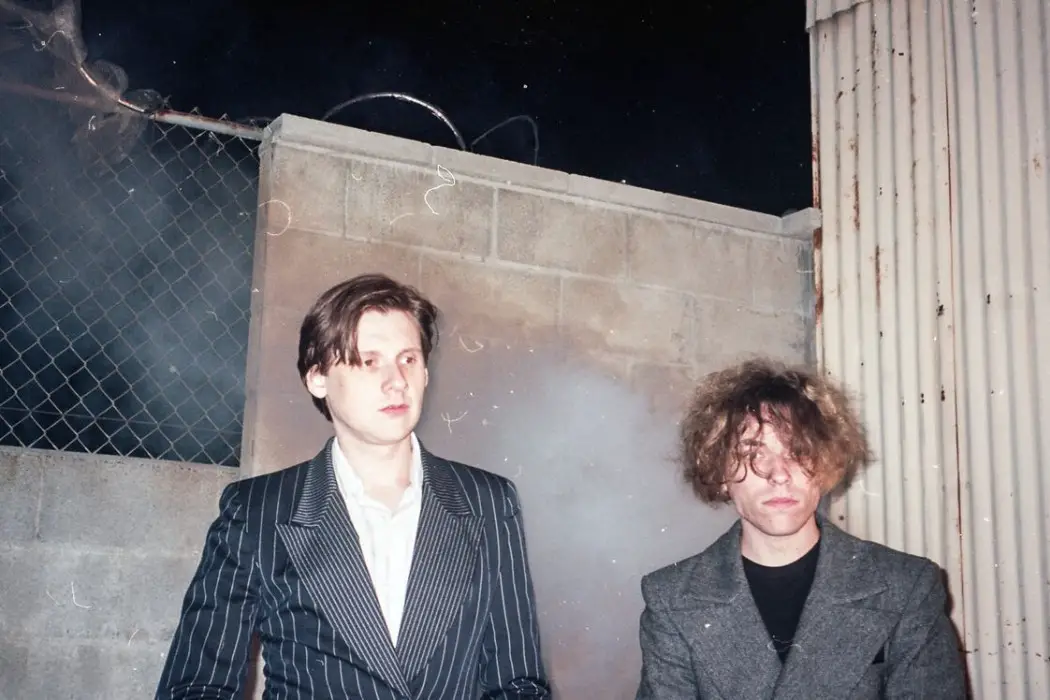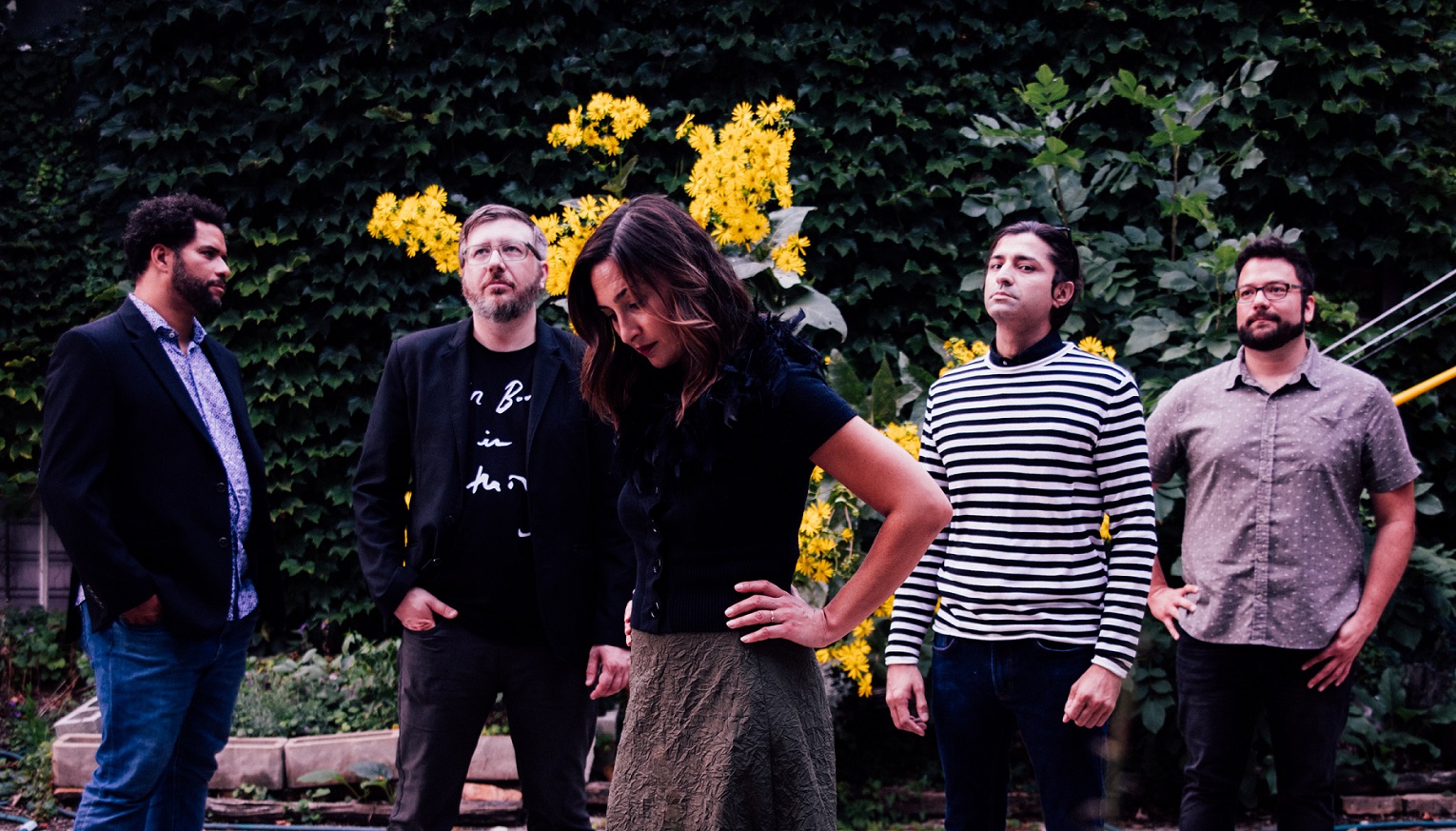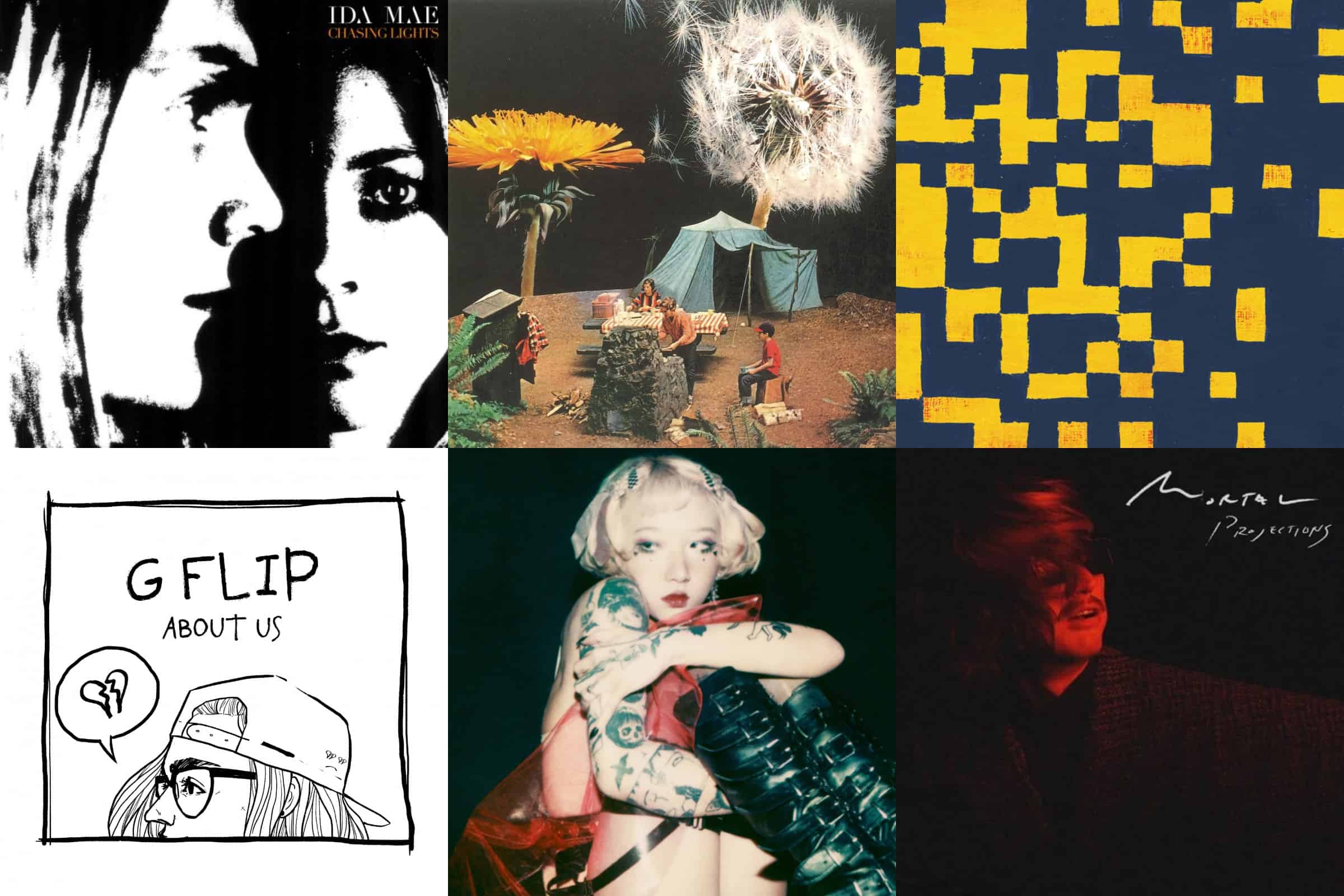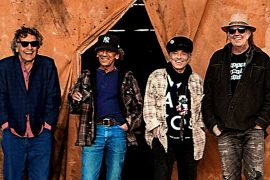Seeing Other People might be the “realest” Foxygen have ever sounded, but it’s not like they care what I think anyway.
— —
Reincarnation. A word that contains multitudes: life, death, and rebirth. One way of understanding the indie rock myth of Foxygen is as a series of reincarnations: Each one the same in spirit, but wholly different in attitude. Since 2003, the duo have never been singular. They have jumped from decade to decade, genre to genre, as if rock history were some bouncy castle to play in. In fact, they see it that way too: “With every album the band dies; with every album the band is reborn,” they wrote in an open letter for Seeing Other People, their final LP under Jagjaguwar, their final reincarnation for now.
Over the phone, Sam France seemed particularly pensive. The sound of wind chimes floating softly in background added this wistful mood. In-between questions, I could hear France sipping on a hot beverage in some quiet temple of his — a moment of solace he has grown more accustomed to as a solo artist. It had been several weeks since the album dropped, and if this was 2012, France would probably have been preoccupied with the logistics: the streaming numbers, the critics, the fan reception. But from what I could gather, he frankly could give two shits about any of it: “I’m at a point in my life where I just don’t give a fuck what anybody thinks of me. Like literally at all. But it’s liberating because I just don’t care. I’m not playing the industry’s game or anything. I guess that was what I was trying to express through the album.”

It wasn’t supposed to pan out this way. Since Foxygen nudged their way into the limelight with their kaleidoscopic EP Take the Kids Off Broadway and breakout LP We Are The 21st Century Ambassadors of Peace and Love, Sam France and partner-in-crime Jonathan Rado have become accustomed to living in a world of triumph and tragedy at the same time. Like many great rock n’ roll bands in recent memory, break up rumors have run amok in the course of their career, and much of the infighting hasn’t been mere conjecture: “We are too close to not have a life together unless we had some epic falling out,” France told me. “We’ve been through so much of that. I don’t even know what the fuck could break us up at at this point. We’ve been through absolutely every horrible thing.”
If friendship is what held Foxygen together for so long, friendship is also what is pushing them away from each other creatively. “We’re not broken up as a band, but we’re also not like together as a band either,” France said. “This was certainly like the last chapter of the Avengers series, you know, this is fucking End Game. This is the last one. I honestly don’t know what’s next, but this was just our last album on Jag.” Many of these chapters are etched with the shitty dilemmas many young rock stars invite and inject into their lives. As they admitted in their open letter, they have lived out “every rock n roll cliché:” excessive drug taking, onstage mental breakdowns, last-minute tour cancellations. Thus, Seeing Other People is partly album trying to deal with the emotional resin built up over fifteen years. But first and foremost, as France explained, Seeing Other People “is just about failure. It’s about not being famous and not ever reaching those crossover goals that you’re told you’re going to reach when you are one of those young, new bands.”
Mainstream success has been a tough holy grail for Foxygen to find, a quest they both believed could be realized: “You know, you’re really told by people you’re gonna be huge. You’re always trying to be a crossover band…I really thought our albums were going to be hit records.” Don’t be mistaken: France and Rado have written hits before as evinced by popular songs like “Follow the Leader,” “Shuggie,” “San Francisco,” and “How Can You Really.” But the duo have been arguably self-sabotaging, stitching their patchwork albums with left field songs that would never work for the radio or charts. If their vault of musical influence were a gumball machine, France and Rado sometimes just break the fucking big, glass ball open with a guitar, picking up different musical flavors to chew at whim. Yet somehow, this bricolage approach works in decidedly impressive ways. Somehow, on songs like “America,” they are able to take a titanic showtune arrangement, swoop it into a jazz breakdown, then soar into a romantic ballad. In a moment’s notice, Foxygen’s film-like scores can swivel from hippie pysch-rock to 1920’s vaudevillian whimsy with relative ease, like a cruise liner turning on a dime. Their audacity to be so bombastic and pastiche, hip and unhip, is the sorcery of Foxygen. This doesn’t mean that the songs never avoid being messy and unfocused. But their willingness to be too much, to step beyond the boundaries of tradition, to take a damn risk is to be admired, even if it is true that they an easier position to do so as a white guy indie-rock band.

If anyone didn’t like the direction of Seeing Other People, that was probably intentional. Dubbed a “Yuppie pop masterpiece” and an “adult-contemporary album,” France clarified that he and Rado “wanted to make a record that mirrored those artists that made all that great work in the seventies and eighties. We want to take the archetype of someone like that, but a record that they would make 1992 or 2000—something that would be at a Starbucks, you know. Definitely something that wasn’t their best work.” This is all for the sake of parody, a theme that much of Foxygen’s work has circled around. Parody is everywhere in Foxygen’s music. It is the trench they fire shots from at their enemies. It is the warm bath they soak their sadness in. It is mirror they look into and turn towards you, to show you that their warts are actually yours too.
For France, Foxygen “has always been about putting on costumes,” about being “unique and unabashed and theatrical…We’ve never been a band.” Perhaps music, that which is the most performative and absurd, is the most piercing and pure. Sometimes, disconnecting from reality allows us to come back to it a little lighter, a little clearer—or at the very least, with fresh eyes. Compared to Hang and Star Power, Seeing Other People is the least theatric of Foxygen’s catalogue. On the “most recent last-album ever,” the makeup is off, leaving naked introspection at the forefront of everything. And instead of being absurd to help their listeners escape, Seeing Other People is mostly an album for France and Rado to get their feelings off of their chest, so they can hang up the costumes for good. While Seeing Other People often withdraws into a void of disillusionment, France at least got one last chance to give a big middle finger to swamp of the leeches, double-crossers, and the record label gluttons.
I left my conversation with France just as uncertain about him as he is for the future. He is certain about some things though, like eventually having family and how “cringey” his upcoming memoir Sam Francisco: The Confessions of an Indie Rock Star is, but the final destination is fogged in the distance. But that is how life goes. So as they said, “don’t be blue,” because France and Rado are just living life. Just like us. Stumbling and falling. Climbing and conquering. Trying to figure out where they belong, what mask to wear, and how to not give a fuck about what anyone else thinks.
Listen: Seeing Other People – Foxygen
:: A CONVERSATION WITH FOXYGEN ::
Atwood Magazine: In the open letter, you and Rado described your lives as a series of rock and roll cliches. A lot of people would consider the cliche to be something sort of avoided at all costs. So do you think of the cliche in this way, and how did your understanding of the cliche shape the way you use them in the album?
Sam France: Well, it’s interesting that you say that. You know, people try to avoid the cliche at all costs. I mean, I don’t know. I don’t know what other people do. I just know what I do. And I know that what I am doing isn’t trendy right now. What’s trendy right now is to become devoid of anything, of features to become featureless. It’s funny to me because people have always accused me of what I am doing to be ironic or fake or something like that. But it’s just funny because I think all the other musicians who are pretending to be like these really woke normal guys are actually really, really fake.
I actually know a lot of them too, so I know they’re fake. It is a posture and boring. People don’t really want it either. It’s just the record company pushing it. People think that people want it, but it’s just a trend. I don’t know if that answers your question totally.
Well, I feel like clichés can be turned on their head and used in a witty way to show something new. It must be interesting to view your music, to make music through the lens of the cliché.
Sam France: I always do feel it through that lens. Rado and I have seen our lives and each record as a slow movie. I don’t know how other people do it, but we have been a band since we’re like 14 years old. That was in 2003, so we were a band back then in the whimsical indie era of when the Flaming Lips were big– that’s kind of how we started. We were like a gang, you know, we’d like come to school dressed like cowboys and Rado would be playing like country acoustic guitar, and I’d be like rapping over it, like Beck.
We’ve always dress the same and we had our own language. We were like a club, so we were like a band in the traditional sense. But being a ‘band’ is not really thing as much of a thing anymore, which is probably good. Bands are kind of stupid and kind of patriarchal and all that stuff. I think we’ve always leaned towards acting like a classic band in the most classical sense. One could say that’s stupid, but I think we can’t help but view ourselves in that way. There’s always been a theatrical element to it, so I don’t know. We just do what we do.
People seem so desperate to understand you, Rado, and Foxygen in such singular ways. Are you trying to complicate how your listeners understand you with Seeing Other People?
Sam France: I don’t know. I didn’t think of complicating anything. It’s funny when I think about how negative the Pitchfork review was. I actually loved it because it was so negative. They were so mad that the album was kind of meta. I’ve referenced myself a lot. I reference Rado. I talk about my own problems a lot. There’s like a hint of ego in my character on the record itself. I just thought that was just fun stuff. I had no idea that people would get offended by it. I’ve noticed like people either love the album or it really, really pisses them off, which I think is kind of funny.
Watch: “Livin’ a Lie” – Foxygen
I remember you mentioned in the open letter that you're saying goodbye to a lot of things, including the “leeches.” So what are some of the leeches that you've burned off for good?
Sam France: That’s certainly a big theme of the record. When you’re a young 20-year-old buzz band, you can sometimes develop an entourage or whatever. I think it’s partly probably why I’m not even touring anymore. It’s such a circus and the whole thing became bigger than what I could control at all. And so I’m taking time off because as far as the leeches go, I don’t know whether it be people involved in business that I realized were toxic or literally crazy stalkers trying to break into my house and stuff.
I’ve had that too. Even with the modicum of fame. I’m not even that famous. I don’t know whether it’s just around Foxygen or whether it’s around bands general, or whether it’s around anybody who sees something through the lens of social media as a litmus test for success. I don’t know. People are really demented and I’ve definitely had a lot of intense things go on in my life. I’ve had to go to court to get straining orders against people. I don’t know why it’s happened to me. Maybe it happens to all people in this industry. Maybe it does. I just know what I know, and so I was definitely writing from that space, having gone through all that stuff.
If there's anything to be sort of optimistic about in this industry, as an artist, what is that?
Sam France: I would tell any young artists getting into it, you know—in 2013, Foxygen was something like the fresh face, fucking white kid rock band. We were the new thing, or at least that’s what they were saying. There always is one or two out there at a time. There also normally around 20 years old, and they’re cute, and they have a certain look and thing. There’s a new one every year, and from the outside, it looks like a lot of fun to be going through what they’re going through. At times, it’s great, but frankly, they’re making no money. That’s just what I know about these kids. They’re making no money. They’re just playing the game, and they’re doing what they’re supposed to do, and they’re really excited and stuff, but they’re paying everybody but themselves.
That is how the industry goes. I would say like to any of these kids, at the very least, that when you’re getting into it, definitely make sure you are working with people you trust and definitely don’t take what anybody says at face value. Definitely look at the numbers, and definitely like make sure that, everything’s going well financially. Even make sure your accountant is doing their job. I mean, it’s stuff you don’t think about, you know, but all that is important. You can still make money in this industry. You can be an independent artist. Record labels take 50% of everything you make, even just for putting up up on Spotify, which is kind of silly. You can just do that yourself, and keep 100% of it.
There’s lots of little things in the music industry that can hit hard. It is a shattered thing and it is still recovering from the trauma it experienced from the major changes a few years ago. But you can figure it out how to do it. It’s not impossible. I didn’t figure out it out until recently, and I just happened to write about that in the music. I guess a lot of people don’t choose to do that. I thought it’d be funny to like talk about that stuff.
Compared to Hang, Seeing Other People seemed a bit more accessible compositionally, but perhaps more introspective and complicated lyrically. Was that the goal intended?
Sam France: Yeah, I mean I think—you put that pretty well. You put that better than I could, so yeah, whatever you just said is right.
Why did you dub this album specifically as an “adult, contemporary album” and a “Yuppie pop masterpiece?” I was really intrigued by those descriptors.
Sam France: We want to take the archetype of someone like that, but a record that they would make 1992 or 2000—something that would be at a Starbucks, you know. Definitely something that wasn’t their best work. We wanted to have that vibe of “adult-contemporary.’ I don’t think it ended up being like that totally. It ended up being Foxygen or whatever, but when we first started making Seeing Other People, we really wanted this kind of adult contemporary sound, that strange flavor and feeling weaved in the album.
There's a lot of the '80s embedded into Seeing Other People. Was it just sort of natural to go to the next era?
Sam France: In a basic sense, yeah. I think Rado said that other day that it was originally going to be a hip-hop album. I forgot about that, but it was. It is like you said, it has like that lyrical complexity. You know, nobody gets mad at rappers for writing lyrics like I write. I just wrote like a rapper, from the perspective of a rapper on the new record. It has that kind of a vibe. I guess people didn’t think it’d be appropriate or me to do that or something. I don’t know, though.
Who are you a fan of right now—specifically a musician that is trying to crack open certain boundaries in a way that's not being received well by others?
Sam France: Kanye West comes to mind, a person who just illustrates beautifully. I mean, I’m just a through and through fan of anything he does. He can’t do any wrong in my eyes at all. I can’t relate to people getting pissed because I find what he does brilliant. It’s moving to me what he does. If it weren’t for him, I don’t know, I might be dead right now or something because he literally keeps me going.
Is it his unwillingness to be PC and say what's on his mind? What's the exact appeal?
Sam France: It’s all those things. I mean, it is him as an artist first and foremost. I think the fact that he’s not PC and stuff is interesting because he was my favorite artists even before he was really controversial. So it’s interesting that he’s controversial now. I don’t know what to think of it. I still love everything he does. And it’s interesting, but like you said, it’s all in hip hop. That’s really where to look. I mean, I know it’s a popular thing to say for any guy in a rock band to say that hip hop is really where it’s at. That’s almost a cliche in an interview or something, but it’s true. Honestly, the music space is just so saturated to the extent where I think we have to sort of give up the idea that the cliche is bad. Nothing is fucking original anymore.
Listen: “Face the Facts” – Foxygen
On this album you are singing about growing pains, about disillusionment, about the loneliness of being an adult. What has been sort of the toughest thing about growing up?
Sam France: I mean, I think I’ve been pretty privileged in my career because at the point where I was writing this album, I really was legitimately disillusioned. In context of the band, Seeing Other people is just about failure. It’s about not being famous and not ever reaching those crossover goals that you’re told you’re going to reach when you are one of those young, new bands. You know, you’re really told by people you’re gonna be huge. You’re always trying to be a crossover band. With each album and everything that you do, you’re normally supposed to be taking the steps towards becoming a mainstream.
But I don’t know what I was thinking because a lot of time I was making really drugged up music that was even recorded in a way that wouldn’t have radio play potential or or we make some lo-fi at stuff. I really thought these albums were going to be hit records. I was literally just on too many drugs. I did not know what was going on. But I think on this record I was kind of like, “Oh shit! Foxygen is not the the biggest band in the world.” I literally thought that. I think the hardest thing about growing up, at least for a lot of people in our generation, is that figuring out our identity in the 21st century. It’s interesting, but it’s an easy theme for me to exploring because Foxygen and my life has always been about putting on costumes and everything.
You are working on a solo project. Can you tell me more about the direction of it, and how it relates to that idea of identity and costume wearing?
Sam France: I’ve really decided to just not really care about how it’s marketed. It is just cool art rock record: a cool, druggy, dark album that could have been made in 1977 or something. It is music that I like to make. I also consider it to be like piano punk or something. I just play piano, and I’m not worrying too much about it. I’ve worked with a lot of people. I did it independently, so I just worked with a lot of people on favors and good studios and musicians.
Did you feel that Seeing Other People actually brought you closer to one another in a way that no previous album did?
Sam France: I don’t think it brought us closer in particular. I think it just cemented the fact that we will probably always do this in some shape or form. We’re just like family, and with family, you don’t always want to hang out every day, but you you’re going to get together eventually. He’s just a person that I have to fucking deal with. We are too close to not have a life together unless we had some epic falling out, and we’ve been through so much of that. I don’t even know what the fuck could break us up at at this point. We’ve been through absolutely every horrible thing. You know, he’s just smart. Our aesthetics developed alongside each other, as we grew up from children to adults. We share everything together really.
He knows exactly how I fucking like shit and vice versa. So it’s convenient. Sometimes it’s cheaper and convenient to work with each other than someone else. It’s just like, okay, I can work with somebody else for like three days on this, or I could do it with Rado in five fucking seconds because he knows exactly what reference I’m making. He knows exactly how to eat EQ it and exactly whatever. We’re not broken up as a band, but we’re also not like together as a band either. And this was certainly like the last chapter of the Avengers series, you know, this is fucking End Game. This is the last one. I honestly don’t know what’s next, but this was just our last album on Jag and the last piece in the series.
Listen: “Work” – Foxygen
Why do you think people are so obsessed with the idea of death of a music project or a duo?
Sam France: Well, I do too. I share in that, you know. I mean good rock and roll is death. I think all the truly good bands that you remember in the mythology, the icons, were bands that are breaking up from day one. Like Fleetwood Mac and all that stuff. There’s always this element of death in the air from like the minute it starts. It just makes for some good art. It is what makes something interesting, that element of death and people don’t know how to interpret it. And people have always had trouble interpreting it, especially with Foxygen.
Is even like the leaving the legacy important for you?
Sam France: You know, the same thing that embarrassed me about Foxygen is the same thing that I really think makes it special. I don’t know exactly what it is, but it’s definitely unique and unabashed and theatrical, and it’s not really a band. It’s kind of like more of a performance art group that’s rooted in recording. I think Foxygen has a special place in people’s hearts. Even these past few years, there were a lot of bands that were around, and I can’t even remember them, and I think people will continue to remember Foxygen, even as the trends change and everything. I don’t know, I think it’ll just get more popular, at least I hope so.
How did writing your upcoming memoir, Sam Francisco: The Confessions of an Indie Rock Star, inform the album , and how did recording the album inform the memoir?
Sam France: They were kind of like one of the same honestly. I wrote them both the same time and so it was easy to write the songs. I mean, it’s a little harder to write the book. I mean it wasn’t hard, honestly. It just needs editing. I basically word vomited my entire experience in the music industry onto paper. So it’s really opinionated, and it’s really talks a lot of shit. That’s how I wanted it too. I had just read miles Davis’s autobiography, and I was so inspired by the rawness of that and how he spared no one. He didn’t give a fuck at all. I just wanted to talk about all the shitty dudes had met or worked with in the music industry, all the situations I’ve been put in, all the really sketchy stuff that I’ve been through. It felt to me like one big cliche: the cliche music industry experience of like, “Hey kid, we’re going to make you a star.” And then you experience all this shit of being lied to and totally ripped off and your taxes haven’t been paid for three years. All this shit happening when I’m touring for a fairly successful record. I really do want to paint that portrait of what I’ve experienced, but I didn’t want to feel sorry for myself. At the time of all the bad, I kind of was though, and I’d been through a lot of addiction problems too, and I was just kind of a mess. I really had to just put it somewhere, so it’s all in there. Honestly, it’s a little brutal for me to read, you know, it’s a little cringey. But I’m just like whatever, you know, honestly, I think people will like that kind of thing.
In hindsight, was there anything sort of emotion, story, or feeling that didn't make it into the record that you wish did?
Sam France: Honestly, I always leave too much on the table with Foxygen, and then I look back and go, maybe I should cleaned that up a little bit.
So what does happiness look like for you in the future?
Sam France: I’m solo now. I just want to like have a family and stuff, you know?
Beyond music, what else have you thought about doing?
Sam France: I’m pretty bored with music. I mean, I like making music, but I’m not like a musician. I’m more of a personality or something. I should probably try to brand myself in some way or something like that. I’m making a film right now, for example. It’s to accompany the book, maybe. I’m just making that now and it’ll just kind of be about my foray into being an independent artists, I guess. I don’t know. It’s funny, but I don’t know what I’m going to do, man. I mean it’s crazy.
I’m not playing anyone any game right now. I don’t have anyone to please. Everyone who hates me already hates me, and everybody who likes me already likes me. So I can’t really do anything wrong. I’m at a point in my life where I just don’t give a fuck what anybody thinks of me. Like literally at all. But it’s liberating because I just don’t care. I’m not playing the industry’s game or anything. I guess that was what I was trying to express through the album. I don’t know. I guess we’ll see.
— —
— — — —
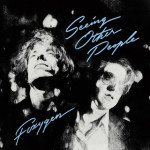
? © Nicky Giraffe

